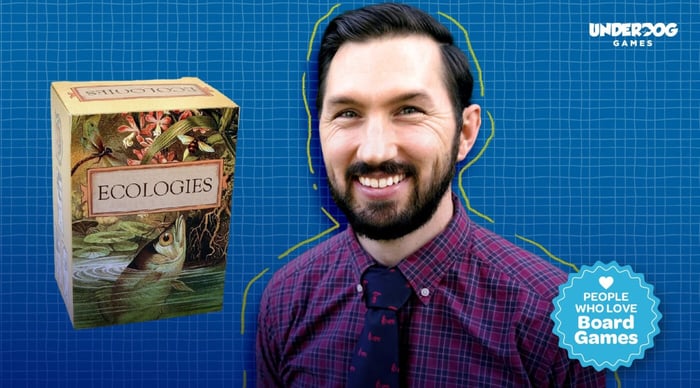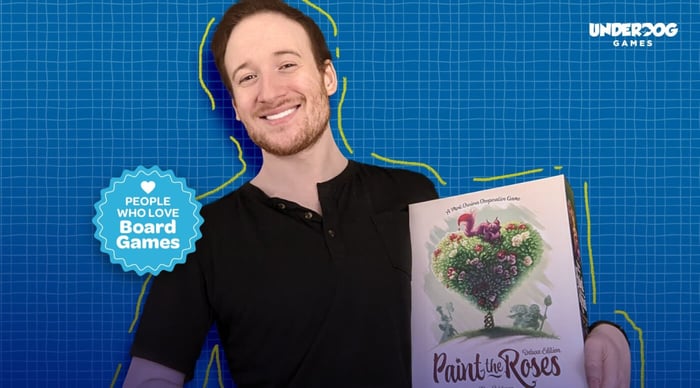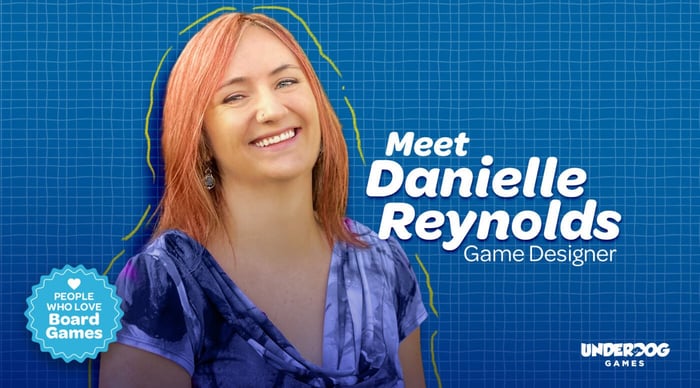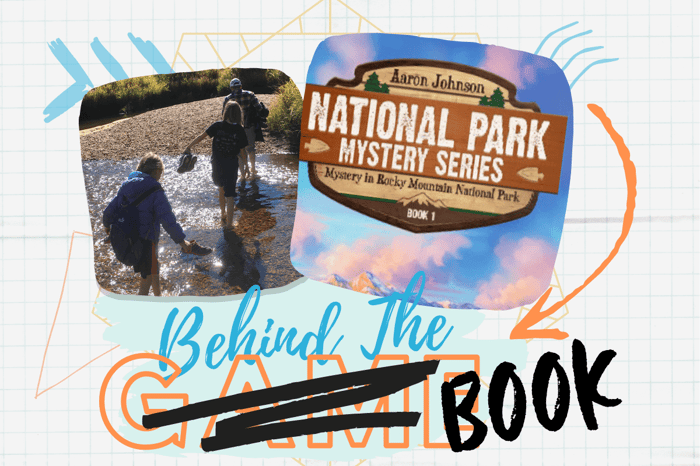While searching for an engaging way to teach biology to his students, Matt Montrose turned to science games for help and ended up creating his own game, Ecologies, in the process. Ecologies uses unique artwork and simple game play to teach players about the impact of food webs in seven distinct biomes. An instant hit with his students, Matt saw the potential to add Ecologies to the science games already on the market.
He founded Montrose Biology and dove into the process of establishing and selling his game. Matt's now a star seller on Etsy with multiple science games under his belt, many of which build on the lessons of ecology and nature. Learn more about his path to creating a successful game, the games he loves playing, and the projects he has on the horizon.

What do you want us to know about you?
I love teaching. Starting this business allowed me to go from teaching hundreds of students about biology to teaching thousands of students about biology by creating my own science games, and that has been extremely rewarding. I used to teach in Japanese high schools and spent much of my twenties in Japan. It feels like a second home to me. I also used to be a journalist, and the experience I gained working for a newspaper helped me a lot–mostly lessons about tenacity and willing projects into existence. I’m happiest in meadows, tide pools, and desert rock piles–anywhere I can quietly observe the wonders of nature.
How did you go from teacher to game creator?
I kept thinking about how to make biology lessons more engaging and thought that a lot of the content lent itself to games. I started using my personal time at home to create a game about ecology and food webs, and when it was all finished I unveiled it to my students. I got so much positive feedback and requests for purchase that I decided to refine it and publish it for public consumption. Everything snowballed from there!
Why did you decide to sell your game on Etsy and how has that been?

I didn’t want to go the Kickstarter route and fundraise. I didn’t want to spend a lot of time convincing people to believe in an idea before it went into production. I loved my game and was committed to making it a reality, even if that just meant very small print runs and enough copies to use in classrooms and sell to friends and family. I also didn’t want to sell an idea to a larger established company. I wanted to grow my project myself and oversee every aspect of production and sale. Etsy allowed me to start very small and grow organically. There are also a lot of creative types that shop on Etsy–the same people who tend to appreciate the intersection of art, science, and gameplay. It’s been great for me, and I’ve really enjoyed getting to know my customers.
What’s a game you remember playing as a kid?
Risk. As a kid, I would watch the grownups at my grandparent’s house have Risk championships after Thanksgiving and Christmas dinner. All the aunts and uncles would be around the table furiously negotiating and rolling dice. I was fascinated! I wasn’t allowed to play, but the morning after I would get the board out with my sister and we would make our own rules. I just liked holding the small abstract pieces and studying the beautiful map. It felt like magic.
What’s a recent board game you tried and loved?
Photosynthesis. I loved the rotating light mechanic that makes you think about how your trees are going to best absorb energy from the sun given the height of the other trees around you.
What’s a go-to board game for you?
Agricola. I love the hard choices that have to be made when planning your farm. I also love daydreaming about being outside on a nice day, tending to plants and animals.
What do you love about board games?
The creative problem-solving, the social interaction, and the imaginative escape from reality. In terms of that last point, I think a lot about the saying “the book is always better than the movie.” Jurassic Park was my favorite movie growing up, but it didn't hold a candle to the book. When you read a book, your imagination transports you to another world and you think creatively in a way that’s not possible with movies. I see video games and board games in the same light. There are video games that I absolutely love, but as much as they impress me and allow me to escape, they don’t work the same imaginative muscles that board games do. When I’m placing wooden sheep on a cardboard pen, my imagination is taking me to a place usually reserved for good books. It’s a magical place that’s only possible when you have to fill in many of the blanks yourself.
What’s a guilty pleasure board game that you play?
Wits and Wagers. I know it’s a party game, but I love that it’s a trivia game where you don’t have to know everything. You can crowdsource the knowledge and bet on the answer you think is correct, leveraging your knowledge of your friends and family to think about who probably does have the correct answer given the topic.
Do you have any advice for others who want to work in the game industry?
Don’t be afraid to start small. If you are having fun and creating, that’s worth it right there. As you gain experience and hone your skills, you can become more and more ambitious in terms of what you are trying to do. If you love the process and are committed to improving your skills, you will eventually have something that can’t be ignored.
What would you like to see change in the board game industry?

I’d like to see a bigger emphasis on art. I want players to cherish their cards, tiles, game pieces, etc. Great art can make a game like a treasure chest–just opening it and handling the contents should make you feel like you have something special. There are a lot of games that are already doing this, like Wingspan and Dixit, where they lead with their art. I am really inspired by games like that.
What’s a hobby you’re into that’s NOT related to board games?
Aquariums! Saltwater, freshwater, planted tanks, shrimp tanks, etc. If a room has a box of water in it, I just have to go and stare at it. Aquariums are another peaceful escape that lets you daydream about another world.
Tell us about a cool game we should know about. Why do you love it?
Bohnanza. I think this game is pretty well known already, but if you don’t know about it, it’s a card game from the 90s where you plant and harvest different types of beans and trade with other players. That might sound underwhelming, but in practice, it is a lot of fun to negotiate with your friends and family and see your strategies come to fruition.
Do you have a project, website, or social media you’d like others to know about?

@montrosebiology is my Instagram account, and I use it both to talk about games and upcoming projects and also to share my nature photography and offer bite-sized biology/ecology lessons about the things I see around me. It’s really fun for me to engage with a community that is as nerdy about nature as I am.
What projects do you have coming up?

We have five games currently making their way to production. A new Ecologies sequel/expansion, a children’s game for ages 4+, a two-player abstract game, a game about sustainable fishing, and a secret project that is sort of a spinoff from the Ecologies games–something we’ve gotten a ton of email requests for. Most, if not all, of these should be available in the next 12 months. We also have a five- and ten-year plan for future releases. There are so many aspects of science that I want to share through tabletop games. I can’t wait to dig into new topics!
If you love learning about the people and stories behind board games, check out this article about Lottie Hazel, co-founder of Birdwood Games and co-creator of the game Dog Park.





